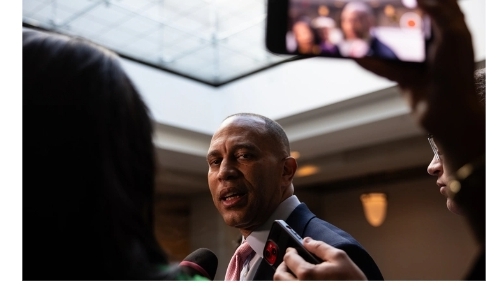After a grinding stand-off that stretched into the record books, the U.S. government reopened late Wednesday when President Donald Trump signed off on a funding bill that ends what is now the longest federal shutdown in American history. The measure, negotiated by House and Senate Republicans alongside a small group of moderate Democrats, funds a large portion of the government through January and rescinds the immediate threat of widespread layoffs and furloughs.
When the House of Representatives voted Wednesday night, the tally stood at 222 in favor, 209 opposed, with two not voting—a razor-thin margin, but enough to clear the last hurdle. Earlier on Monday, the Senate had approved the deal with 60 votes—thanks to most Republicans plus eight Democrats who broke with their caucus.
The funding lapse that began October 1 shut down large swathes of federal operations, furloughed hundreds of thousands of employees and hampered critical services from airport security to food-aid programs. The final deal restores pay for federal workers, reverses the mass-layoff plans initiated by the White House, and keeps the government running until at least January 30 of next year.
But despite the relief of reopening, major fault lines remain. Central to the shutdown was Democrats’ demand that tax credits for health plans under the Affordable Care Act (popularly known as “Obamacare” subsidies) be extended. That demand was left unfulfilled. The deal leaves the subsidies on the table for a future vote—no extension is guaranteed. Democrats are furious, warning of another showdown if those credits are not acted on soon.
In his signing ceremony, Trump seized on the moment. “We’re sending a clear message that we will never give in to extortion,” he said, charging that Democrats had “tried to extort our country.” House Republicans echoed the rhetoric in a statement crediting themselves with ending what they termed “the Democrat shutdown,” and placing blame squarely on the opposition for the hardship endured by millions of Americans.
Democratic leaders, however, weren’t ready to let the matter rest. On the House floor shortly before the vote, Minority Leader Hakeem Jeffries declared: “This fight is not over. We’re just getting started. Either Republicans finally decide to extend the Affordable Care Act tax credits this year, or the American people will throw Republicans out of their jobs next year…”
With government funding now restored but set to expire again in late January, the pressure cooker of U.S. politics remains hot. For millions of federal employees, for travelers left stranded, for food-banks stretched thin, and for health-care enrollees bracing for premium hikes, the relief is welcome—but fragile. The next chapter, particularly the fight over the ACA subsidies, looms just ahead.



